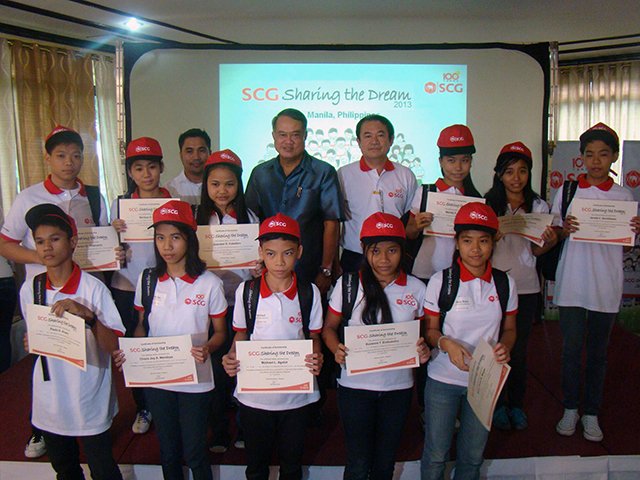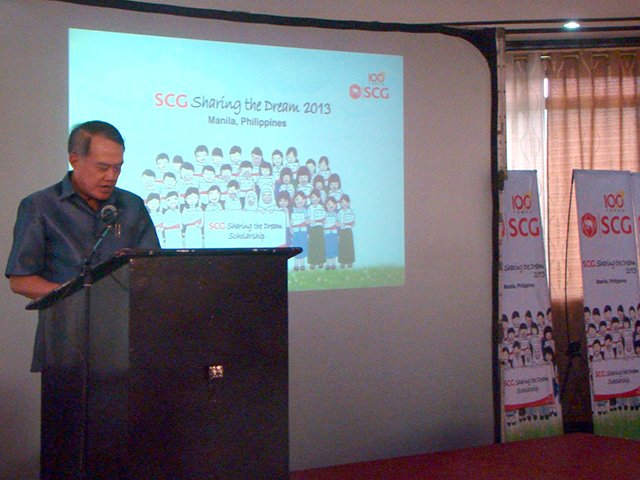What's New
Honorary Consul of Thailand in Cebu, paid a courtesy call on H.E. Mrs. Makawadee Sumitmor, Ambassador of the Kingdom of Thailand
On 14 July 2025, Hon. Roy L. Chiongbian, Honorary Consul of Thailand in Cebu, paid a courtesy call on H.E. Mrs. Makawadee Sumitmor, Ambassador of the Kingdom of Thailand to the Republic of the Philippines, at the Thai Residence. Also in attendance were Mr. Rangsant Srimangkorn, Minister; Mrs. Narttaporn Nitimontree, Minister Counsellor; and Mr. Louie James Montesa, Assistant to the Honorary Consul.
Ambassador Makawadee extended her congratulations to Honorary Consul Roy Chiongbian on the two-year extension of his tenure, recently endorsed by the Minister of Foreign Affairs. She also expressed appreciation for the Honorary Consulate’s consistent support for the Embassy’s various missions. The Ambassador welcomed the opportunity to hear insights and recommendations from the Honorary Consul, given his success as a prominent Filipino businessman and his extensive network, particularly on ways to further strengthen Thailand–Philippines cooperation across various sectors.
In return, the Honorary Consul congratulated the Ambassador on her appointment as Ambassador of the Kingdom of Thailand to the Republic of the Philippines and reaffirmed his full support for the Embassy’s activities. Both sides also exchanged views on economic cooperation between Thailand and the Philippines, as well as on the assistance and protection of Thai nationals living in Cebu.
![]()
Mrs. Makawadee Sumitmor, Ambassador of the Kingdom of Thailand to the Republic of the Philippines along with Embassy officials held a commemorative ceremony in remembrance of the passing of His Majesty King Bhumibol Adulyadej The Great on the occasion of
เนื่องในวันนวมินทรมหาราช 13 ตุลาคม 2568 สถานเอกอัครราชทูต ณ กรุงมะนิลา ได้จัดพิธีน้อมรำลึกในพระมหากรุณาธิคุณ พระบาทสมเด็จพระบรมชนกาธิเบศร มหาภูมิพลอดุลยเดชมหาราช บรมนาถบพิตร โดยนางมาฆวดี สุมิตรเหมาะ เอกอัครราชทูตฯ ได้วางพวงมาลาเบื้องหน้าพระบรมฉายาลักษณ์พระบาทสมเด็จพระบรมชนกาธิเบศร มหาภูมิพลอดุลยเดชมหาราช บรมนาถบพิตร และกล่าวน้อมรำลึกในพระมหากรุณาธิคุณฯ ในนามข้าราชการและประชาชนชาวไทยที่พำนักในสาธารณรัฐฟิลิปปินส์และสาธารณรัฐปาเลา จากนั้น เอกอัครราชทูตฯ และผู้เข้าร่วมพิธีฯ ได้ยืนสงบนิ่งเป็นเวลา 89 วินาที เพื่อน้อมรำลึกในพระมหากรุณาธิคุณพระบาทสมเด็จพระบรมชนกาธิเบศร มหาภูมิพลอดุลยเดชมหาราช บรมนาถบพิตร โดยมีข้าราชการสถานเอกอัครราชทูตฯ ทีมประเทศไทย พร้อมคู่สมรส เข้าร่วม
On the occasion of the Navamindra Maharaj Day on 13 October 2025, Her Excellency Mrs. Makawadee Sumitmor, Ambassador of the Kingdom of Thailand to the Republic of the Philippines along with Embassy officials held a commemorative ceremony in remembrance of the passing of His Majesty King Bhumibol Adulyadej The Great at the Ambassador’s Residence. The ceremony included a wreath-laying ceremony followed by 89 seconds of silence in remembrance of His Majesty’s enduring legacy.
A Buddhist ceremony dedicated to His Majesty King Bhumibol Adulyadej on the occasion of 50th day of the His Majesty’s demise
On 4 December 2014, H.E. Mr. Thanatip Upatising, Ambassador of Thailand to the Republic of the Philippines presided over the Buddhist ceremony dedicated to His Majesty King Bhumibol Adulyadej on the occasion of 50th day of the His Majesty’s demise. The said ceremony was attended by Embassy’s officials, Team Thailand, and Thai people residing in the Philippines. After completing the ceremony, the monk gave a sermon on “Sufficiency” which was imparted in His Majesty King Bhumibol Adulyadej’s speech on 4 December 1998 at Dusitdalai Hall, Dusit Palace. All participants made a 9-minute meditation dedicated to His Majesty King Bhumibol Adulyadej.













“SCG Sharing the Dream 2013” (7 June 2013)


On 7 June 2013, H.E. Prasas Prasasvinitchai, Ambassador of the Kingdom of Thailand, attended the Turn-Over Ceremony of scholarships under the project “SCG Sharing the Dream 2013” to 150 students from 14 schools in Metro Manila, Batangas and Bulacan Provinces. The ceremony was presided over by Mr. Anukul Kongrit, SCG Country Director and President of Mariwasa Siam Ceramics, Inc. at Villamor Golf Clubhouse. Mr. Wichan Jitpukdee, President of United Pulp & Paper Inc., Mr. Saran Wongratana, President, SCG Trading Philippines, Inc., Mr. Jim Valerio, Provincial Administrator, Bulacan Province, Mr. Daniel Darwin, Community Development Officer, Batangas Province also attended the event.
SCG initiated the “SCG Sharing the Dream” programme in 2008. To date, there have been 600 scholars under the programme.

A candlelight ceremony in respect and remembrance of His Majesty King Bhumibol Adulyadej of the Kingdom of Thailand
On 20 October 2016 at 17.00 hours., H.E. Thanatip Upatising, Ambassador of the Kingdom of Thailand to the Philippines, presided over a candlelight ceremony and led a 9 minute silence in respect and remembrance of His Majesty King Bhumibol Adulyadej of the Kingdom of Thailand. Since 14 October 2016, more than 400 people, including representatives from the Philippine Government, Diplomatic and Consular Corps, and International Organisations, universities, as well as the Thai and Philippine nationals have signed the Book of Condolences.




















